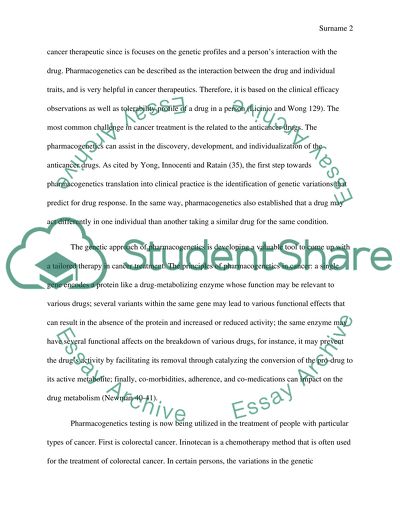Cite this document
(“Pharmacogenetics in Cancer Essay Example | Topics and Well Written Essays - 1250 words”, n.d.)
Pharmacogenetics in Cancer Essay Example | Topics and Well Written Essays - 1250 words. Retrieved from https://studentshare.org/health-sciences-medicine/1682320-pharmacogenetics-in-cancer
Pharmacogenetics in Cancer Essay Example | Topics and Well Written Essays - 1250 words. Retrieved from https://studentshare.org/health-sciences-medicine/1682320-pharmacogenetics-in-cancer
(Pharmacogenetics in Cancer Essay Example | Topics and Well Written Essays - 1250 Words)
Pharmacogenetics in Cancer Essay Example | Topics and Well Written Essays - 1250 Words. https://studentshare.org/health-sciences-medicine/1682320-pharmacogenetics-in-cancer.
Pharmacogenetics in Cancer Essay Example | Topics and Well Written Essays - 1250 Words. https://studentshare.org/health-sciences-medicine/1682320-pharmacogenetics-in-cancer.
“Pharmacogenetics in Cancer Essay Example | Topics and Well Written Essays - 1250 Words”, n.d. https://studentshare.org/health-sciences-medicine/1682320-pharmacogenetics-in-cancer.


